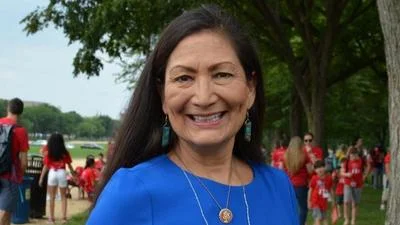The New Mexico Legislature concluded a special session on October 3, 2025, with the passage of five bills aimed at addressing funding shortfalls resulting from recent federal budget cuts. Governor Michelle Lujan Grisham called the session to ensure that essential state services would not be disrupted.
Of the five bills passed, four have already been signed into law by Governor Lujan Grisham. These measures primarily focus on maintaining healthcare access, food assistance programs, and judicial operations in the state.
House Bill 1 provides $162 million in emergency appropriations. The funding includes $66 million for the Health Care Authority, $16.6 million to maintain Supplemental Nutrition Assistance Program (SNAP) benefits, $8 million for food banks and pantries, $17 million to reduce health insurance costs through the BeWell NM exchange, $30 million for the state's emergency contingency fund, and $50 million for the Rural Healthcare Fund.
House Bill 2 expands eligibility for state subsidies through the Health Care Affordability Fund. It is designed to help residents who are above 400% of the federal poverty level as federal premium tax credits are set to expire.
Senate Bill 1 transfers $50 million to the Rural Health Care Delivery Fund and broadens eligibility criteria to include providers in high-need areas and tribally operated facilities.
Senate Bill 2 restores authority for metropolitan court judges to preside over criminal competency cases. This bill was passed with an emergency clause and takes effect immediately.
A fifth measure, Senate Bill 3, would expand the New Mexico Department of Health’s authority to purchase COVID-19 vaccines for children and revise how vaccination guidelines are set. However, it did not receive enough votes for immediate implementation and is still under review by Governor Lujan Grisham.
The special session did not introduce any new legislation directly affecting New Mexico's oil and gas industry. Previous changes impacting that sector were made during the regular legislative session earlier in 2025.
Key impacts from these legislative actions include expanded healthcare subsidies and emergency funding expected to help thousands of New Mexicans maintain coverage—particularly those living in rural or underserved areas. Additional funds directed toward SNAP benefits and food banks aim to address hunger risks following reductions in federal support. Restoring metropolitan court authority over competency cases is intended to improve judicial efficiency by reducing delays. Increased investment in rural health infrastructure is expected to help sustain clinics and hospitals serving high-need communities across New Mexico.









